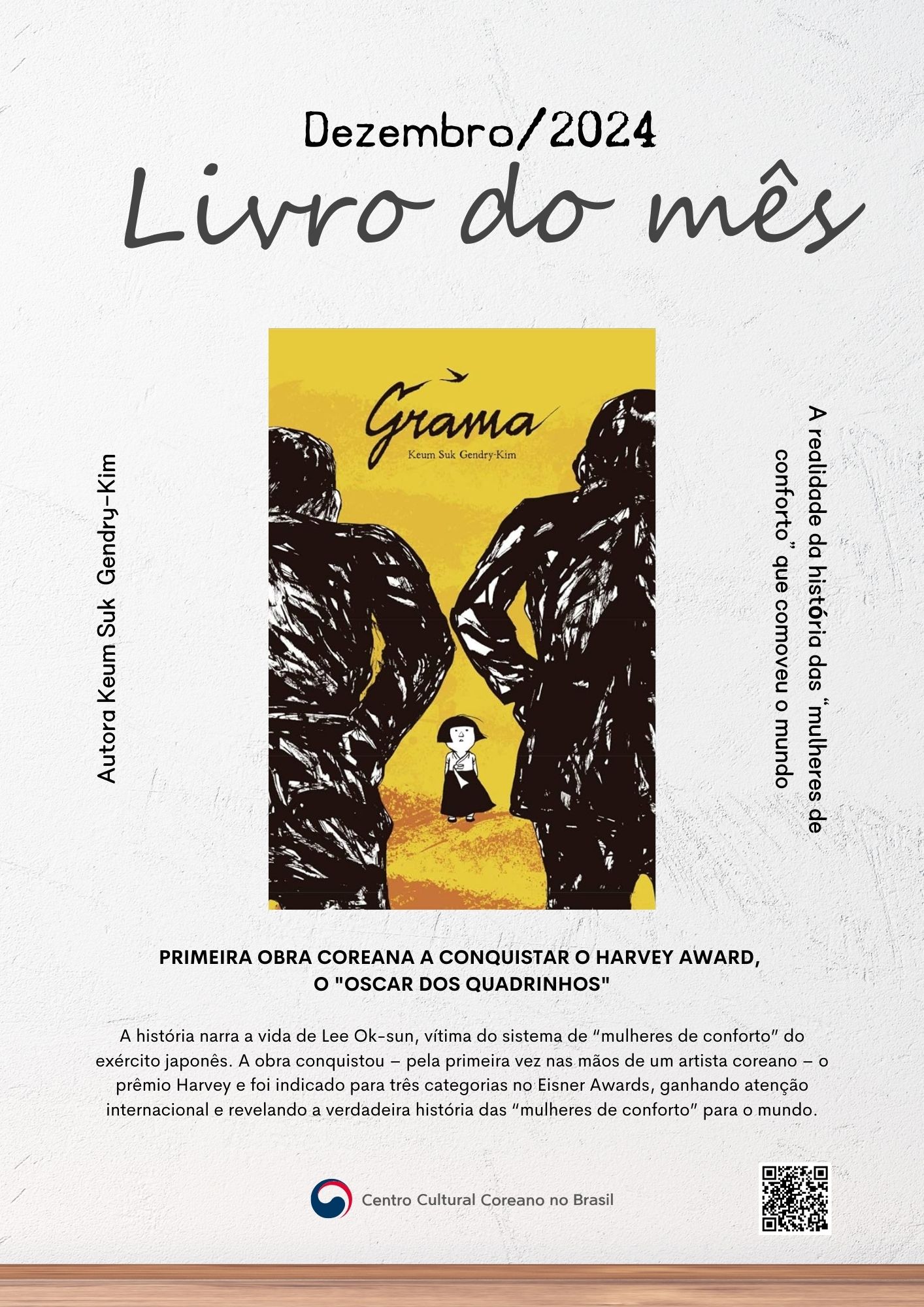
[ABOUT THE AUTHOR]
Keum Suk Gendry-Kim was born in Goheung, Jeolla Province, surrounded by the beauty of mountains and the sea. Through personal stories, she creates works that sensitively capture universal themes and the pain of the times. Among her best-known works are The Wait, which addresses families separated by the Korean War; The Naked Tree, a reinterpretation of Park Wan-suh’s novel; Alexandra Kim – Daughter of Siberia, depicting the life of Korea’s first Bolshevik woman; Dogs, a story about man's best friend; and Jun, which narrates the journey of a young person with intellectual disabilities and their family. Keum Suk Gendry-Kim also wrote and illustrated The Song of Papa (아버지의 노래), Kkoggaengi, and The Foreigner (이방인). Her most recent work, Tomorrow is Another Day, portrays the life of a childless couple and their family in the present context, in addition to publishing her first essay book, The More Time Passes, the Brighter It Shines (시간이 지날수록 빛나는). Furthermore, the author has written and illustrated several children's books.
(Source: Kyobo Book Centre)
[KOREAN PUBLISHER'S REVIEW]
- First Korean work to win the Harvey Award, the "Oscar of Comics"
- Published in 35 countries, bringing the story of the Japanese military’s "comfort women" to the world
- A representative work of Keum Suk Gendry-Kim, the renowned comic artist recognized by The New York Times, The Guardian, and The Washington Post
"War turns human beings into something inhuman"
The reality of the "comfort women" story that moved the world
During her research to write Grass, Keum Suk Gendry-Kim visited the Nanum House in Gwangju, Gyeonggi Province, where elderly survivors of the Japanese military's "comfort women" system live. After several visits, the artist formed a connection with Lee Ok-sun, one of the survivors, and began interviewing her. However, the elderly woman had difficulty sharing her story and repeatedly said, "Japan is bad. Abe (the Japanese Prime Minister) needs to apologize." After many repetitive conversations, Lee Ok-sun finally opened up and revealed the painful details of her life.
Grandmother Lee Ok-seon was born as the eldest of five siblings in Bosudong, Busan. With a strong desire to learn, Ok-seon, like other children, dreamed of going to school. However, her family could barely make ends meet and could not provide for Ok-seon’s education. To relieve the family’s burden, she was sent as an adopted child to another household. Tired of the false promises of the family, she left the new house and started working as a maid, moving from house to house. At sixteen, while running an errand for her employers, she was approached by strangers on the street and forcibly taken. Thus, she became a "comfort woman."
Ok-seon’s testimony of her life as a "comfort woman" is vivid and brutal. However, the scenes that reveal her suffering are not directly described but represented with dark ink, images of trees and wind, using a painting technique similar to sumi-e. The artist believes that reproducing the violence explicitly could cause further harm to the victims and would not effectively convey the cruelty or inhumanity to the readers. A review in The New York Times stated: "Scenes that stop the heart more than any comic"; the intense illustrations in Grass vividly convey the brutality of this story without explicitly describing the realities of the "comfort women."
A cry for those who question why Japan should apologize
Even as the victims pass, the story will not disappear
Grass was exported to 35 countries, bringing the true story of the "comfort women" of the Japanese military to the world. In Japan, in 2020, through the efforts of a civic activist, the Japanese version was successfully published via crowdfunding, promoting solidarity at the civil society level and illuminating the future of Japan-South Korea relations.
The great appeal of Grass can be attributed to the fact that the issue of the "comfort women" is not only a problem between Japan and South Korea but a broader issue of women's rights and human rights. In the "Author’s Note" of the revised edition of the book, Keum Suk Gendry-Kim says, "I never imagined that people with different skin colors and who speak languages I don’t understand, especially young women, would cry and thank me," and adds, "Sexual violence is a horrific act that leaves deep wounds on the victims, transcending time, age, race, and social class."
The final scene of Grass shows Lee Ok-seon, enraged by the 2015 Japan-South Korea agreement on "comfort women" that excluded the victims, swearing to continue the fight until the end. In 2024, the year of the revised edition’s release, the survivor, now ninety-seven years old, still stands firm in her defense of Nanum House. Despite her debilitated health, including the need for dialysis, she continues to actively participate in related events and raise her voice, saying, "We will not die before receiving an apology." Like the grass that rises again after being trampled, the voices of East Asian women who overcame the horrors of war crimes and became witnesses to history resonate deeply with readers.
(Source: Kyobo Book Centre)
[KEUM SUK GENDRY-KIM IN BRAZIL]

The South Korean artist Keum Suk Gendry-Kim participated for the first time in all the days of the 2024 Comic Con Experience (CCXP), which took place from December 5 to 8 at São Paulo Expo.
CCXP is recognized as the world’s largest pop culture festival, gathering fans of comics, movies, series, games, geek entertainment, and collectors. The event featured a full schedule of panels, international guests, debates, masterclasses, lectures, and workshops, as well as exclusive products, themed areas, and cosplay performances.
Keum Suk Gendry-Kim's participation in CCXP was the result of a partnership between the event's organization, Pipoca & Nanquim publishing house, and the Korean Cultural Center in Brazil.
(Source: CCXP https://www.ccxp.com.br/lineup/934/keum-suk-gendry-kim/)